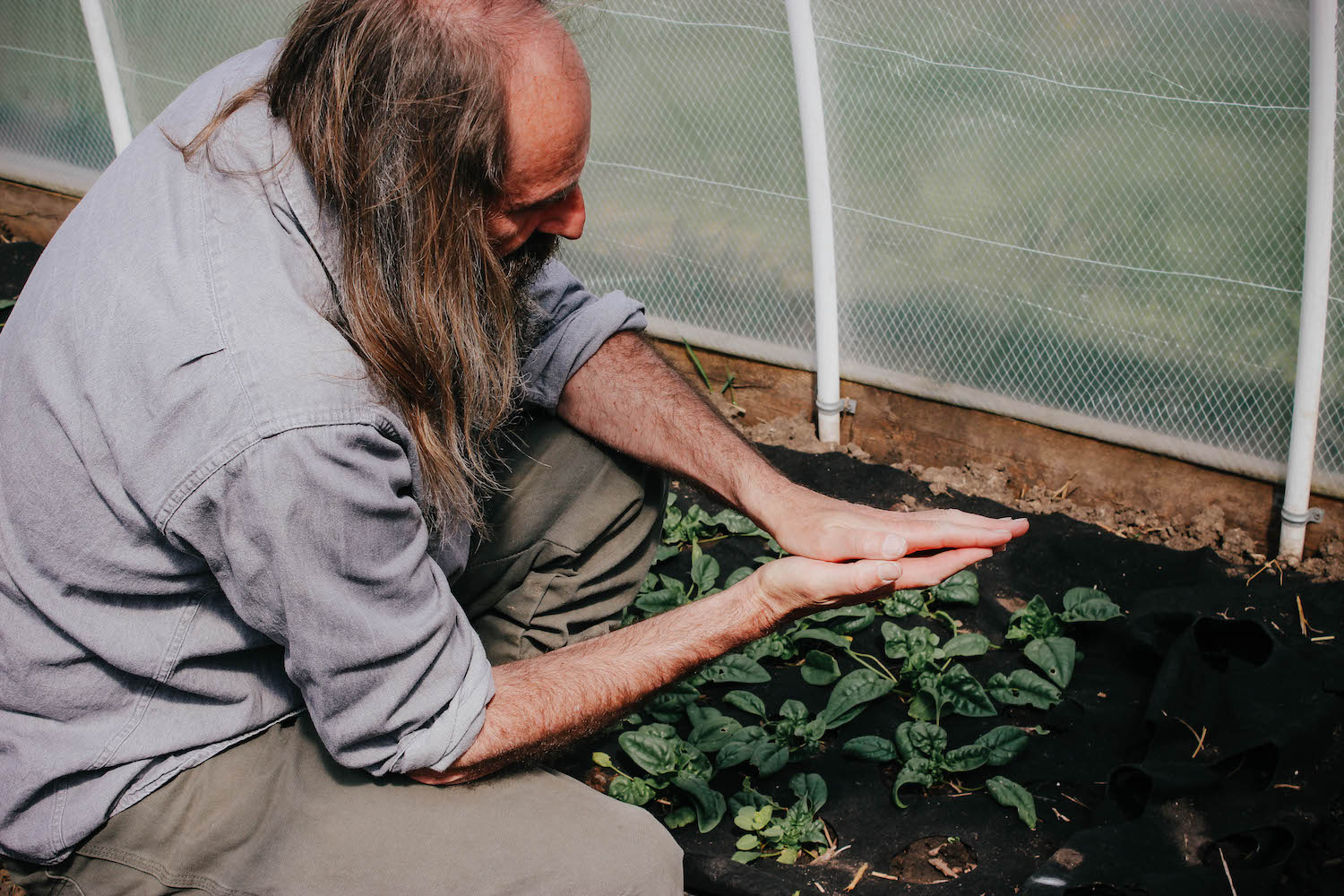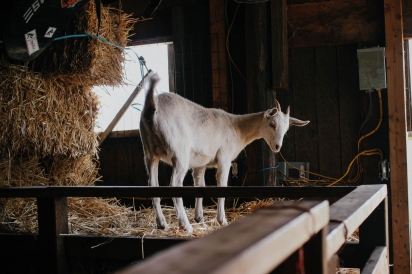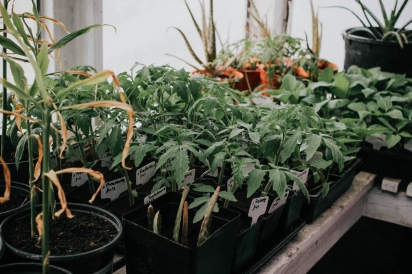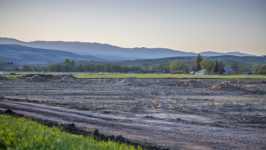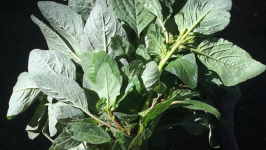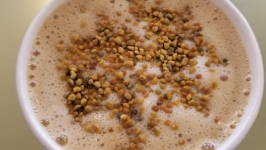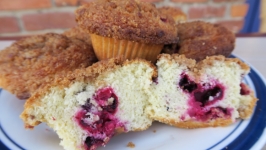Johnson Cooperative Farm: Sustainably-Grown Produce, the Cooperative Way
It all started with a small garden and a few goats...
Chris Wise and his partner Laura own and operate Johnson Cooperative Farm, a 2-acre farm located near the unincorporated town of Johnson, Washington. Their home, built in 1896, was originally owned by the town banker. Chris and Laura are in the process of restoring the house, with its gorgeous stained glass windows, while dedicating their remaining spare time to the vegetables, chickens, and goats they grow and care for.
Chris grew up in the Johnson area, attended Pullman High School, and now works in the construction industry. He purchased the house and land 20 years ago and has made major improvements to the property since then. The Johnson area is beef country, so his neighbors were rather skeptical when he decided to raise goats. The goats, however, helped him achieve his goal of creating a farm that operates using sustainable and organic practices: they cleaned up the weeds in his pasture and garden area and provided income through the sale of their meat to build a fence and purchase farming equipment.
Chris has a unique relationship with Halal Meats in Pullman. He initially contacted the company to see if they wanted to purchase goat meat. He became skilled in butchering using the Halal method which he describes as “quick, efficient, and respectful of the animal.” Although he no longer sells goat meat, he welcomes Muslim families to the farm and either teaches them how to butcher the Halal way or butchers their animal himself.
Chris and Laura’s vegetable growing season usually begins in April and lasts until November. They have racks of seedlings under grow lights in both their downstairs and upstairs living areas. Once the plants are big enough, they are moved outside to a heated greenhouse, which also serves as a work area. When ambient temperatures are warm enough, the seedlings are planted in one of two hoop houses or outside in the garden beds. Their vegetables are all non-GMO, heirloom varieties. Johnson Cooperative Farm operates using a reduce, reuse, and repurpose mentality. The greenhouse and hoop houses were built using scrap lumber, discarded windows, reinforced plastic sheeting, and woven felt fabric all salvaged from job sites Chris had worked, purchased used, or pulled from dumpsters. Vegetable waste, soiled animal bedding and yard clippings are composted and used as fertilizer for the gardens. Chris hopes to plant a green manure crop in the future. They use well water—that has been tested for and found free of pesticide residue for irrigation and do not apply any herbicides. A spray bottle with a vinegar solution takes care of the weeds in the hoop houses.
Chris and Laura plant a wide variety of vegetables. Sensitive to the dietary needs of the Muslim community, they grow spinach, carrots, onions, garlic, and hot peppers, as well as lettuce, broccoli, tomatoes, and peas, among others. They are also experimenting with “exotic” and native vegetables such as yard-long beans, sunchokes, ginger, aloe vera, pac choi, and turmeric.
“The more we can get multiple cuttings from our vegetables, the more cost effective it is for us,” Chris explained.
The farm grows produce for the Community Services Action Center in Pullman, six CSA clients, and the Moscow Food Co-op. Their CSA clients also receive farm-fresh eggs from their chickens. The delectable microgreens the Co-op offers come from Johnson Cooperative Farm; look for more of their produce as the summer progresses.
“People need to get involved with their food,” Chris believes. To that end, he is willing to “listen and implement changes” if one of his CSA clients has a request for a vegetable or herb he currently doesn’t grow. This practice is where the “cooperative” in the name of the farm comes from.
Goats are still involved in Chris and Laura’s farm operation, but only for their personal use — and pleasure! Laura is their chief caregiver and calls herself a “goat doula." They have a Saanen doe named Bella who gave birth to a female kid they named Uno this spring. Their buck goat recently died, so they added a Lamanchamix wether as a companion for Uno. Chris hopes to train the new goat as a pack animal. Bella’s milk is used for drinking and to make cheese. Other animals on the farm include rabbits, cats, chickens, and turkeys.
The number of goats has decreased and the garden space has increased since Johnson Cooperative Farm began. Chris and Laura remain strongly dedicated to bringing sustainably-raised, organically produced produce to the local community.

Johnson Cooperative Farm
Halal Meats | @hala_meats
Moscow Food Co-op | @moscowfoodcoop
Community Services Action Center
This article was originally printed in Moscow Food Co-op's magazine, Rooted.


